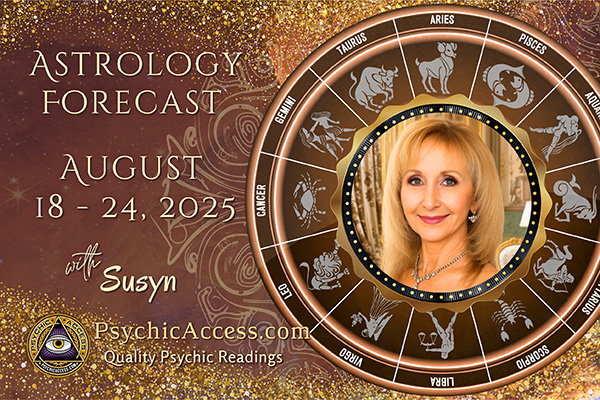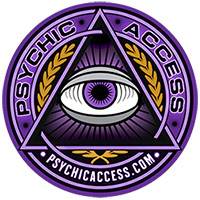How to Become Your Own Source of Illumination in Difficult Moments
 We have encountered troubling times and dark days globally in recent years, regardless of our location. However, the future holds much more promise than it appears, and that beacon of hope starts with you.
We have encountered troubling times and dark days globally in recent years, regardless of our location. However, the future holds much more promise than it appears, and that beacon of hope starts with you.
With the prevalence of social media and incessant news updates, primarily focused on adverse events, disasters, conflicts, or tragedies, many of us feel bombarded these days. These are particularly difficult times for those who are spiritually aware and highly sensitive individuals.
Our generation is inundated with a barrage of distressing news and content, much of which comprises falsehoods and fear-inducing rhetoric. Today’s children face exposure to more during their school days than many of us did after we entered adulthood and began our careers. While this may not always be beneficial, it also signifies they are maturing more quickly and can gain wisdom with appropriate guidance.
When people reminisce about “the good old days,” they often reflect on how much more straightforward life appeared in earlier times. I recall my grandparents expressing such thoughts long before the existence of the internet, smartphones, or AI. Therefore, each generation has its nostalgia, and this feeling is certainly not new in the digital era.
That said, some of us today still grew up without television or radio and have witnessed the complete transformation of our current digital landscape. Many older individuals still feel detached from the rapid changes. Yet, there is beauty even in this. Every generation carries invaluable wisdom, and now more than ever, we must merge that wisdom with the tools available today to forge a better future for everyone.
Currently, more children and adults are grappling with mental health challenges. This reflects the fast-paced nature of modern life, the pressures stemming from social media, the increase of online bullying and comparison, and above all… an excess of screen time coupled with a dearth of fresh air!
There is an enduring light within you that can never be extinguished. It is the illumination of your true self ~ Sharon Salzberg
However, awareness is expanding. More individuals are seeking healing and a more mindful existence. And this is fully attainable for all of us, irrespective of current global conditions.
So, how can we safeguard our health, well-being, and sanity while supporting those we cherish?
Begin by incorporating simple pauses into your daily routine. Power down the TV. Disconnect from your phone, computer, and tablet. Reconnect with your loved ones. Look them in the eye. Say, “I love you.” Offer a hug. And silently, send a blessing into their lives. I engage in this practice daily. It transforms the energy around me and within me.
Prioritize “me time.” Reclaim space for yourself. Ask what you require in the moment. Sometimes, I walk through nature. Other times, I sit in my garden or visit the beach to observe the water. In winter, I stand outside and allow the snowflakes to kiss my face. These may be simple acts, but they are profoundly cleansing and restorative. They refresh the spirit.
To genuinely flourish, you must nurture your mind, body, and spirit. When these three are aligned with your dreams and truths, you will feel the difference. Life will start to change. You’ll begin to notice more beauty. You’ll feel lighter, stronger, and more serene within.
Not everyone will comprehend your peace. Some may even attempt to challenge it because they haven’t discovered their own yet. They might be discontented or uncertain about how to establish balance themselves. That’s perfectly fine. It’s not your obligation to carry their burdens. What truly matters is your energy protection. No one else can create your tranquility, and no one can take it unless you permit them.
When I encounter negativity, I subtly steer the conversation in a different direction. If that doesn’t suffice, I excuse myself for a moment, step outside, and take a breath. If you practice this often enough, people will begin to notice. And if they don’t, and you suspect they are speaking ill of you behind your back, let them. Walk away. True friends do not dwell in judgment. They create space for light and love.
The light in your mind represents truth. The light in your heart signifies knowledge. The light in your soul embodies wisdom ~ Matshona Dhliwayo
Here are some straightforward strategies I implement to maintain my own light and frequently recommend to my clients during readings. Each one aids in restoring your energy, shifting your perspective, and reconnecting you with your divine essence:
Establish a digital detox routine
Designate sacred times daily to unplug from screens. Allow your nervous system to recuperate. Let your spirit breathe. Whether it’s an hour before bed or a morning free of phone checks, these brief periods of stillness invite deeper clarity.
Safeguard your peace with boundaries
Don’t hesitate to say no when necessary. Your energy is valuable, so protect it with intention. Boundaries are not barriers; they serve as filters that welcome love but eliminate draining or toxic influences.
Allocate time for mindful silence
Stillness encourages the soul to speak. Whether through meditation, a few deep breaths, or quietly enjoying your morning tea, silence opens space for guidance, healing, and reconnection.
Surround yourself with uplifting souls
Choose a community that elevates you. Spend time with individuals who motivate you to heal, grow, and rise. Even if your circle is small, let it be sacred.
Reconnect with nature
Walk barefoot on the grass. Observe the movement of clouds. Feel the sun’s warmth on your skin. The Earth is an extraordinary healer. Nature grounds you in the moment and reminds you that you belong to something greater and are supported deeply.
Start a gratitude journal
Gratitude is a transformational practice. Each morning or evening, jot down three things you appreciate. They can be trivial or significant: your morning coffee, a friend’s message, a peaceful moment. Gratitude shifts your focus from scarcity to abundance. The more you acknowledge the blessings surrounding you, the more they will multiply.
Incorporate a prayer or meditation practice
It doesn’t need to be lengthy or formal. Just a few sincere words spoken in quietude, or a moment of concentrated breathing, can open your connection to Spirit. Consider trying a daily affirmation, mantra, or a simple prayer such as, “Guide me today. I am open to divine wisdom.”
Utilize divination for guidance
Draw a daily oracle or tarot card to inspire your day. Seek a message from your ancestors, guides, or angels. Sit quietly and reflect on the symbolism or intuitive message you receive. This is a wonderful tool for deepening your insight and spiritual connection.
Work with the energy of crystals
Crystals are not only beautiful; they are energetic allies. Carry them in your pocket, wear them as jewelry, or place them in your surroundings to shift energy. Here are some recommended crystals that support positivity, protection, and inspiration:
Citrine: Enhances optimism and personal power. A joyful stone that aids in manifesting abundance and brightness.
Amethyst: Soothes the mind, enhances spiritual clarity, and repels negativity.
Black Tourmaline: Excellent for grounding and shielding against toxic energy.
Clear Quartz: Amplifies intentions and provides clarity. It can be programmed for any purpose.
Labradorite: A mystical stone of transformation and intuition, ideal for navigating transitions.
Rose Quartz: Opens the heart, rebuilds trust, and fosters unconditional love, particularly for yourself.
Create a crystal grid in your living space, place one beneath your pillow, or keep one by your workspace to transform the energy around you. Allow your intuition to guide you to the right stones for your journey.
As we let our own light shine, we unconsciously give other individuals permission to do the same ~ Marianne Williamson
Your journey is sacred, and your energy is distinct. Check in with yourself each day. What do you require to feel balanced? What does your soul seek? Be it music, dance, journaling, ritual baths, or moonlit gazing. Honor your spirit in ways that resonate deeply with you.
Always remember, you are not here to fix everything. However, you are meant to shine. Your light is essential. You are meant to illuminate the path not just for yourself, but for others who are still learning to radiate.
Spirit is always present. And when you feel unable to maintain your light alone, reach out for assistance, whether through prayer, meditation, or simply voicing your heart aloud. You are never alone.
You have the right to shine, even when others may not. Continue to illuminate your space. In time, those meant to walk alongside you will notice. They’ll inquire how you remain grounded, calm, and filled with grace. And before you know it, you will become a guide, not through pressure, but by example.
You don’t need all the answers. You don’t need to transform the entire world. But you can choose your path. You can opt for light. And from that decision, everything starts to unfold.
Be your own source of light.
|
Sheri is a renowned psychic and angel reader offering clear insights on finance, career, relationships, manifesting dreams, and resolving life’s complexities. Since 2004, she has owned an International Spiritual Healing Centre where she practices Reiki—either working with clients or teaching the levels of Usui Reiki. She uses her office space for readings conducted via mail, phone, chat, or in person. Since 2008, she has refined her abilities on several psychic service platforms, providing telephone, chat, or email readings. Additionally, she supports a spiritual network for individuals who have experienced profound loss, drawing from her own first-hand encounters with such tragedies. Described as honest, compassionate, and transformative, Sheri aspires to see all her clients ascend to a higher level of spirituality and growth, positively impacting the world. You can receive a psychic reading from Sheri at PsychicAccess.com. |















